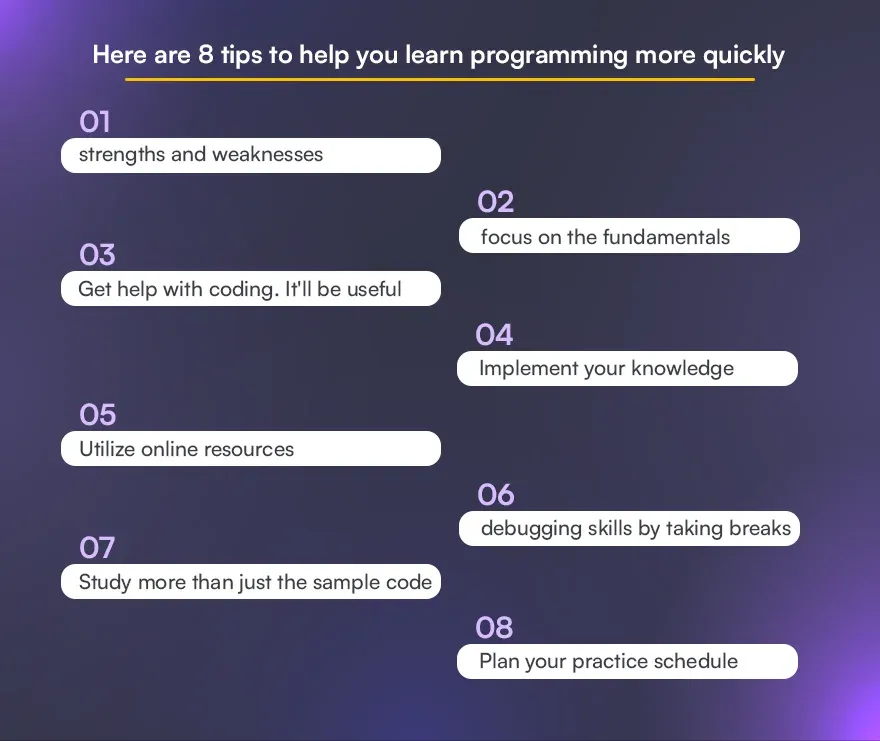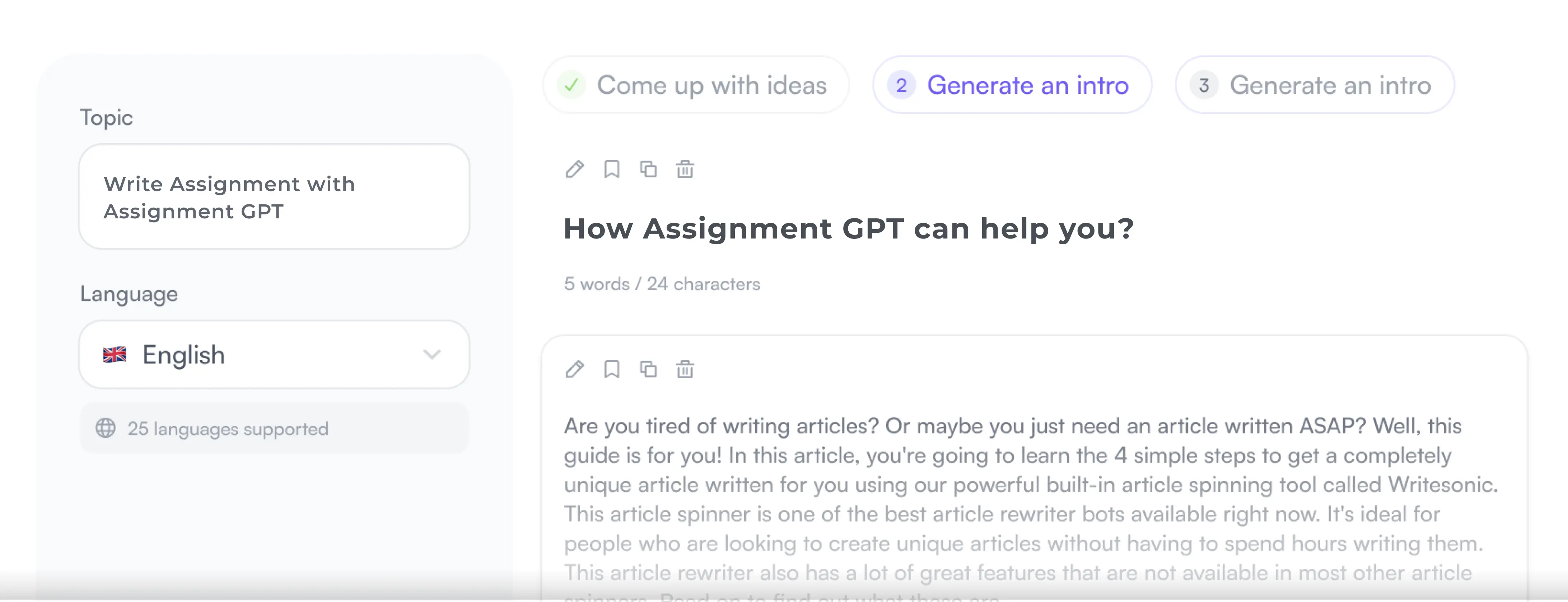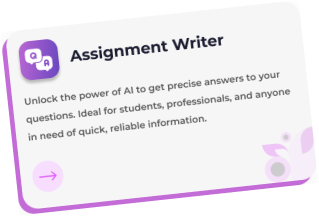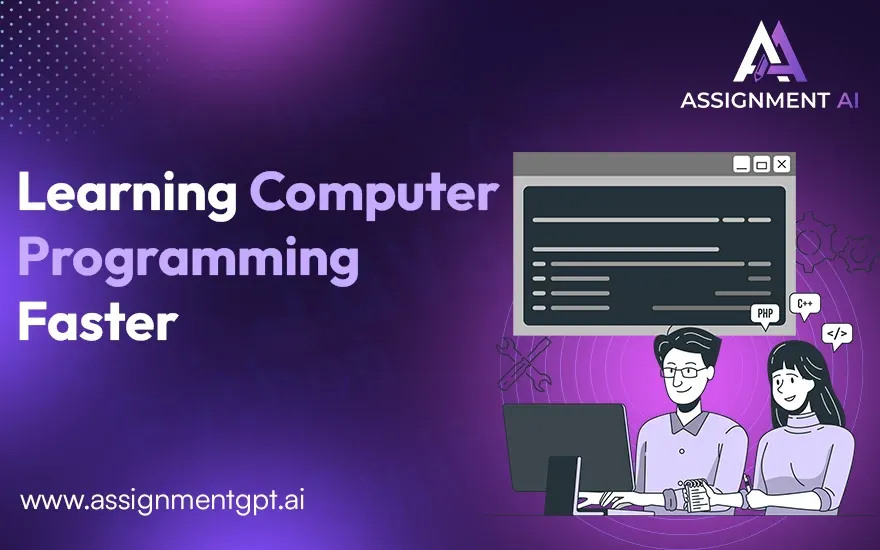AssignmentGPT Blogs
Many students see learning computer programming as daunting. But it can be fun and rewarding if you do it right. Introduction to computer programming is the gateway to understanding other programming languages. Learning code opens up many career paths and is necessary if you want to be a developer.
It has been the subject of choice amongst engineering aspirants for years, and software development is at its peak with the rise of digitisation and the introduction of artificial intelligence.
In this article, we will give you tips and suggestions on how to learn coding faster. These are methods and habits recommended by experts that you can incorporate into your approach on how to start coding. Let us get an overview before quickly getting into it.
8 tips to help you learn programming more quickly
To learn programming quickly, start with a clear goal to maintain focus. Practice coding daily to build and reinforce skills. Utilize online resources like tutorials and coding challenges to supplement learning. Break problems into smaller, manageable tasks to understand concepts better. Join coding communities for support and collaboration. Read and understand others' code to gain new perspectives. Regularly review and revise your code to improve efficiency. Finally, stay patient and persistent, as consistent effort is key to mastering programming.

1. Identify your strengths and weaknesses in programming.
As a programming student, you must understand what areas of computer programming are easier for you to grasp. Identify your strong points and areas where you are lagging. This will help you determine what topics to weigh more while preparing your self-learning plan.
To do so, evaluate yourself based on your performance on the assessments you have taken and the recurring patterns in the errors generated by your code while debugging. You can make an extra effort in your weak areas to be a more efficient learner.
2. Keep your focus on the fundamentals.
When you are new to programming, it is easy to get carried away in excitement and attempt the more complex and interesting concepts and exercises. Many applications will be more appealing to the young learner. It is not unlike wanting to do stunts while learning to ride a bicycle. Unless you have a strong grasp of the fundamentals, it will be even more challenging and consequentially time-consuming to learn the stunt. On the other hand, if your fundamentals are clear, you can learn to code almost any program.
3. Get help with coding. It'll be useful.
Programming seems to be a task done in isolation. However, even in the largest tech giants, the task is performed by teams. In this case, don't shut yourself in and brood over a difficult programming assignment. Take the help of your fellow students and approach your mentor. Online communities like Stack Overflows are a good place to discuss your challenges and learn from others, particularly for students learning on their own or through online resources. Once you've attempted a problem yourself and you're at a dead end, talking to fellow students and programmers is the best way to learn computer coding.
4. Implement your knowledge
Theoretical knowledge is important; however, applying the principles you've learned will cement the knowledge in your mind. It will stay with you for a lifetime, and you will start grasping the subject quickly. You can try the problems given in your course material or attempt a small project. You could even take up various assessments available online that are not part of the course and impress coursemates with your knowledge. Implementation helps as it will give you a cross-topic and hands-on understanding of your course.
Also read this article : 12 AI Tools That Can Gеnеratе Codе To Hеlp Programmеrs
5. Utilise online resources
Online resources can be a saving grace while learning programming. Resources mentioned earlier in this text are a good place to start. Use tools such as AssignmentGPT's Instant Code Solver tool to get instant solutions to your code with a detailed explanation in order to learn quicker from your mistakes.
6. Improve your debugging skills by taking breaks.
The importance of breaks can not be overstated. It seems counter-intuitive at first that taking breaks should help you learn quickly. However, if you don't take regular breaks, you will develop fatigue, which will hinder your performance and overall productivity. A clear way this can happen is in debugging, where it gets harder to identify a bug in your code if you've been at it for hours. Even seasoned programmers will take a break and look at the code with a fresh eye when this happens. Schedule your breaks realistically, and make sure to relax and hydrate periodically.
7. Study more than just the sample code.
The sample code is used to illustrate a concept and will give you one way of solving the problem. However, as a professional developer, you'll need to have a better vocabulary and be able to achieve the output in a variety of ways depending on the intended application of the overall program. What's more, having a wholesome understanding of a concept will make it easier to grasp future concepts, and you will be able to finish your course faster while getting more out of it.
8. Plan your practice schedule.
It is very important to analyse your course material and plan your practice sessions in advance. In this way, you will know how much time you should dedicate to the practice of a given concept. Jumping in without a plan is an approach that would make the course go on endlessly, as programming is a vast subject. At times, practising will be fun, and you will want to go on endlessly, or a seemingly simple concept might get overlooked and not get the due practice time.
Conclusion
The best way to learn code without compromising on what you get out of each learning session is to develop a good understanding of your strengths, weaknesses, and learning patterns. Make a plan. Develop strong fundamentals and explore coding examples and problems through implementation. You can use all the resources and communities available to you, online or offline. And don't forget to take breaks.
FAQs
1. How can I learn computer coding?
2. Where can I get help with coding?
3. What online resources can help with programming?
Content writer at @AssignmentGPT
Rashi Vashisth is a content writer who helps brands put their thoughts into words. She creates blogs, website content, and brand stories that are easy to understand and feel genuine. Her writing style focuses on keeping things clear and making sure the message connects with the right people.
Master AI with
AssignmentGPT!
Get exclusive access to insider AI stories, tips and tricks. Sign up to the newsletter and be in the know!

Transform Your Studies with the Power of AssignmentGPT
Empower your academic pursuits with tools to enhance your learning speed and optimize your productivity, enabling you to excel in your studies with greater ease.
Start Your Free Trial ➤Start your success story with Assignment GPT! 🌟 Let's soar! 🚀
Step into the future of writing with our AI-powered platform. Start your free trial today and revolutionize your productivity, saving over 20 hours weekly.
Try For FREE ➤








